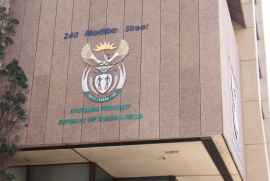
The International Monetary Fund (IMF) believes that South Africa’s implementation of structural reforms, combined with fiscal consolidation, could help boost private investment, employment and growth.
IMF officials held a series of meetings with South Africa this month as part of their routine economic surveillance function, as prescribed in the IMF’s Articles of Agreement.
The IMF said restoring energy security will require attracting private sector participation in the electricity market and addressing Eskom’s operational and financial deficiencies.
“Similarly, stronger-than-expected private sector participation in the energy sector could improve the growth outlook,” National Treasury said in a statement following the meetings.
The IMF noted that the country’s large external asset position, diversified economy, sophisticated financial system, and flexible exchange rate regime are sources of strength, supported by the Reserve Bank’s pro-active monetary policy, have kept inflation expectations anchored.
“They note that these features provide a favourable base for growth,” Treasury said.
The IMF acknowledged that government has made important headway on domestic revenue mobilisation, removed licensing requirements for embedded power generation and completed the spectrum auction.
In addition, the IMF recognised steps taken to improve third-party access to the country’s ports and freight network.
It also noted the anti-corruption measures that have been announced in response to the judicial recommendations of the Commission of Inquiry into allegations of State Capture.
“Nevertheless, [the IMF highlighted] various downside risks to South Africa’s economic outlook, including external risks that could emanate from a deeper and more protracted global slowdown, further weakening of commodity prices and a shift in global investors’ sentiment away from emerging markets.”
"Domestically, they noted downside risks that delay addressing the energy crisis, and Eskom and Transnet’s operational and financial weaknesses, slower-than-expected progress or reversal in reforms and policies. These include fiscal consolidation and increased political uncertainty," Treasury said.
Greylist
Exiting the greylist, according to the IMF, will require South Africa to continue to implement the agreed Financial Action Task Force (FATF) implementation action plan promptly.
“International experience suggests that the adverse impacts of greylisting increase the longer a country remains on the list.
“Therefore, the mission encourages stakeholders to continue working together to exit the list as quickly as possible and closely monitor the impact of the greylisting on capital flows and the financial system,” the IMF said.
Treasury took note of the main findings from the IMF staff following their consultations.
In addition, it said it is aware of most of the risks to economic growth and is working on mitigating measures to address these, as detailed in the 2023 Budget Review. – SAnews.gov.za


